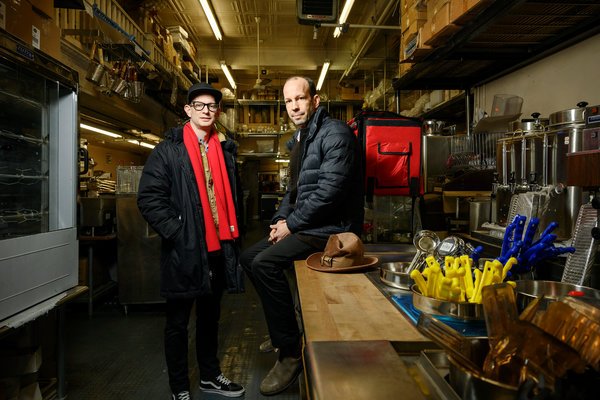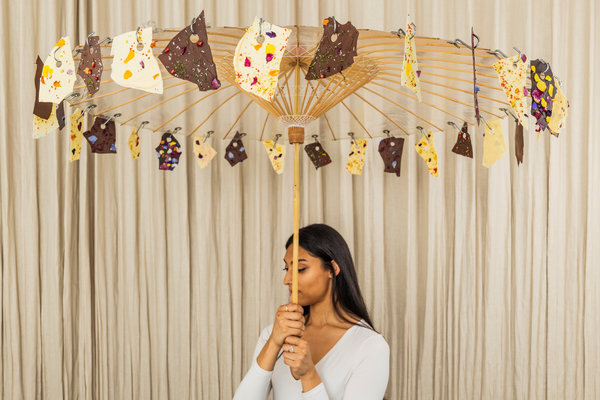Like short-order cooks and diner waitresses, catering crews have their own vocabulary. Here is a brief glossary, culled from “Hotbox: Inside Catering, the Food World’s Riskiest Business” by Matt and Ted Lee.
S.V.O.
Acronym for silent vegetarian option, a dish to be substituted at the request of guests, but not explicitly offered to everyone. It can be a risky play, because a particularly attractive S.V.O. can suddenly go viral, with more requests than the kitchen can fill.
Sandbag
To stockpile a food item as insurance against later demand. Mostly frowned upon because quality can diminish during the wait.
Pipe and drape
Racks made from steel or plastic pipe, and hung with drapes that provide a shield between the makeshift kitchen and diners at an event space.
Fiesta
The work shift that requires traveling to an event and preparing the food there, as opposed to shifts in the prep kitchen. The fiesta shift typically pays at least twice as much as a prep shift.
Chef completo
A worker trained in all the stations of a fiesta kitchen.
Plate-up
The complex process in which food is quickly assembled on plates by a line of cooks, each responsible for one small element on each plate, so that a team of waiters can serve an entire banquet hall in minutes.
Serve-out
The scheduled time when the cooked food is ready to be taken to diners.
Hot box
In New York, a tall, aluminum cabinet on casters used to transport food; it can be turned into a makeshift oven with sheet pans and canned fuel. In other cities and in restaurants, a hot box is a similar cabinet, but contains an electric heating element. (Sometimes, a hot box refers to an insulated plastic container that can hold food.)
Proofer
Another name for a hot box, or a person with enough skill to use the cabinet like an oven to finish cooking proteins or vegetables at an event.
Rerun
The dispatching of workers back to the main prep kitchen to pick up food or equipment that was left behind.
Preset
A plated dish that is waiting at each guest’s place when they all sit down. A preset can shave at least a half-hour off the event, but each plate must be identical, and the taste and texture of the food must survive a half-hour or more at room temperature.
N.O.G.
Acronym for not our goods, a term used by party supply-rental companies for household items like plates or napkins that are accidentally mixed in with rental goods when they are returned.
French-style
A type of service in which platters of food are carried to the table by a waiter, who serves each person one at a time.









